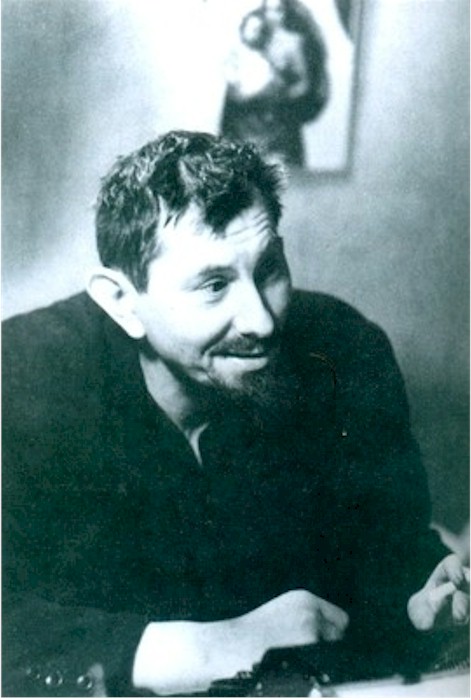Самиздат
Русский > Контекст > Литературный контекст > Самиздат
Cамиздат (samizdat) is a term used in the Soviet Union for clandestine printing an distribution of literature, that could not be published because of its controversial or critical content. The Russian word сам (sam) means self.
The term samizdat was a parody of official soviet terms like gosizdat (state publisher) and politizdat (political publisher). The poet Nikolai Ivanovich Glazkov (1919-1979) would have been the first - in the 1940's - to parody the official publishing houses, by putting the word samsebjaizdat on a book of poetry he had typed and provided with a cover.
Vladimir Bukovsky (born in 1942) defined it as follows: "Самиздат: сам сочиняю, сам редактирую, сам цензурирую, сам издаю, сам распространяю, сам и отсиживаю за него." - "Samizdat: I write it myself, I edit it myself, I censor myself, I publish myself, I distribute myself and I get imprisoned for it myself " Bukovsky was one of the first to expose the use of psychiatric imprisonment as a measure against political prisoners in the Soviet Union. He stayed 12 years in prisons, labour camps and psikhushkas. A психушка (psikhushka) is a psychiatric institution with treatment under force.
The uncensored publications were, due to the lack of professional equipment and the underground character, made very amateurishly with the use of photocopiers, carbon paper or typewriters, and therefor they had a limited number of copies. They were mainly distributed through an informal circuit.. Anyone who had a copy, made more copies and distributed it among friends, who made more copies. The use of copiers and typewriters in offices was quite risky, because they were controlled by the secret service.
Many literary works that are now famous all over the world, were considered as subversive in the Soviet Union, and first published in samizdat. Think of Doctor Zhivago written by Boris Leonidovich Pasternak (1890-1960) and The Cancer Ward written by Alexander Isaevich Solzhenitsyn (1918-2008). Not everything published in samizdat had political overtones, like for instance the Russian translations of the books of J.R.R. Tolkien. There was thought that his bestseller The Lord of the Rings was meant as a metaphor for World War II. In this theory, Sauron and Saruman would represent nazi-Germany and the Soviet Union Tolkien himself always denied any resemblance between his work and reality. But the suspicion of the authorities is no surprise: in their battle against communism the Russian intelligentsia often used metaphors in the tgranslation of the names in his books.
A term related to samizdat is tamizdat: The publishing of controversial litterature abroad - там (tam) means there. It was done by smuggling the manuscripts out of the country. It was like this that Boris Pasternak's Doctor Zhivago was printed by the publisher Mouton in The Hague.
Things can change, however, as we could see not so long ago. On June 12, 2007, Alexander Solzhenitsyn received the State Award for extraordinary humanitarian achievement. President Putin drove himself to Solzhenitsyn’s house in Troytse-Likovo outside Moscow to hand over the prize, and praised Solzhenitsyn for the fact that he had “dedicated his life to Russia".
Поместить эту страницу |
